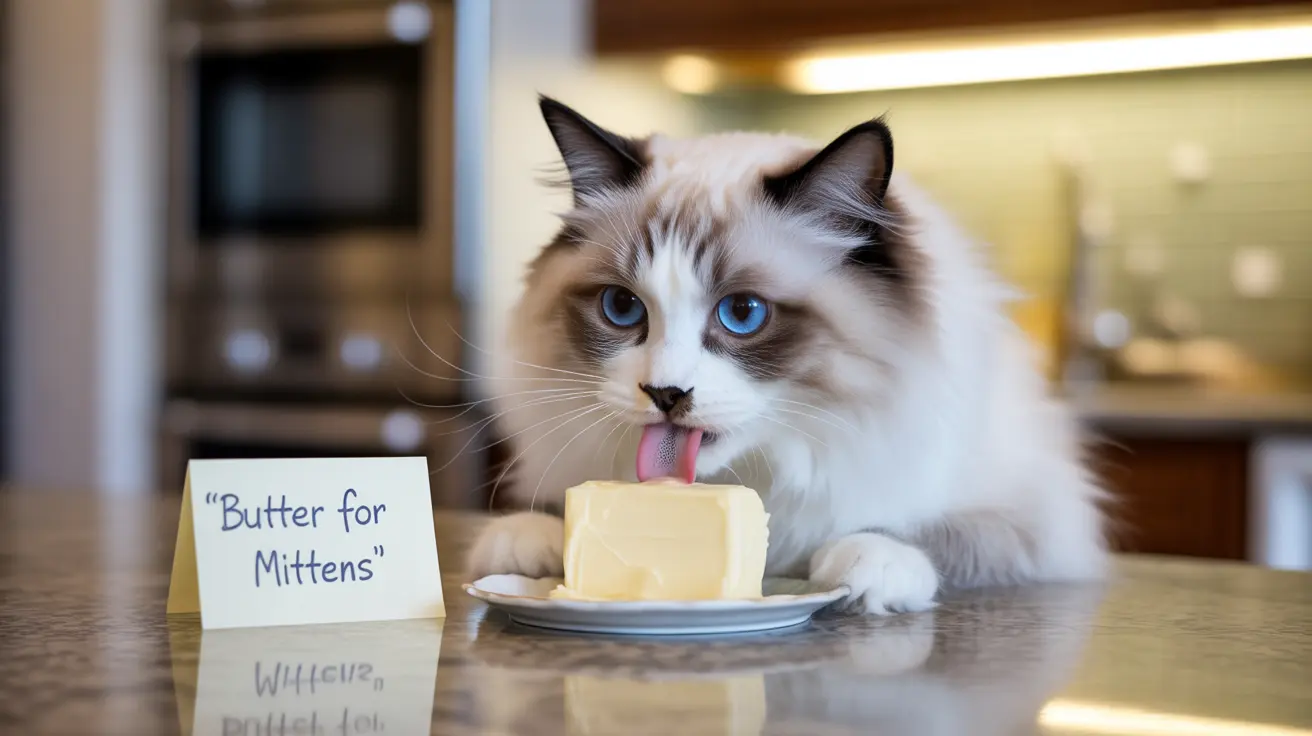Understanding Cats and Dairy Products
Unlike the popular image of cats happily lapping up milk, most adult cats are actually lactose intolerant. This biological fact extends to butter consumption, as butter is a concentrated dairy product that contains both lactose and high levels of fat.
After weaning, cats lose the enzyme necessary to properly digest lactose, making dairy products potentially harmful to their digestive system. This natural adaptation explains why even small amounts of butter can cause gastrointestinal issues in most cats.
Health Risks of Feeding Butter to Cats
Immediate Health Concerns
When cats consume butter, they may experience several immediate adverse reactions:
- Vomiting and diarrhea
- Stomach cramping
- Gas and bloating
- Loss of appetite
- General digestive discomfort
Long-term Health Implications
Regular butter consumption can lead to more serious health issues:
- Obesity due to high caloric content
- Pancreatitis
- Diabetes
- Cardiovascular problems
- Chronic digestive disorders
The Nutritional Impact of Butter
Butter provides no nutritional benefits for cats. While it contains some vitamins (A, D, E, and K), cats are obligate carnivores that require their nutrients from animal-based protein sources. The high fat content in butter (approximately 80%) can lead to unnecessary weight gain and associated health problems.
Safe Alternatives to Butter
If you're looking to supplement your cat's diet, consider these veterinarian-approved options:
- High-quality commercial cat foods
- Specially formulated cat treats
- Omega-3 supplements (if recommended by your vet)
- Small amounts of cooked, plain meat as occasional treats
What to Do If Your Cat Eats Butter
If your cat has consumed butter, don't panic. Monitor them for signs of digestive upset and follow these steps:
- Watch for symptoms of gastrointestinal distress
- Ensure fresh water is always available
- Contact your veterinarian if symptoms become severe
- Keep butter stored safely away from curious paws in the future
Prevention Tips for Cat Owners
To protect your cat from accessing butter:
- Store butter in covered containers or the refrigerator
- Clean up any butter spills immediately
- Never leave buttered items unattended
- Educate family members about the risks of feeding butter to cats
Frequently Asked Questions
Is it safe for cats to eat butter occasionally, or can it harm their health?
While an occasional tiny lick of butter isn't likely to cause serious harm, it's not safe to intentionally feed butter to cats. Even small amounts can cause digestive issues, and regular consumption can lead to significant health problems.
Why is butter not recommended for cats despite not being toxic?
Butter isn't recommended because it contains lactose, which most cats can't digest, and high levels of fat that can lead to obesity and pancreatitis. It offers no nutritional benefits while posing several health risks.
What digestive problems can butter cause in cats?
Butter can cause vomiting, diarrhea, stomach pain, bloating, and gas in cats. These symptoms occur because most adult cats are lactose intolerant and cannot properly digest dairy products.
Can feeding butter regularly to cats lead to obesity or pancreatitis?
Yes, regular butter consumption can definitely lead to obesity due to its high fat and calorie content. It can also trigger pancreatitis, a serious and potentially life-threatening inflammation of the pancreas.
What should I do if my cat accidentally eats butter?
Monitor your cat for signs of digestive upset. If symptoms are mild, ensure they have access to fresh water. If severe symptoms develop (persistent vomiting, diarrhea, or lethargy), contact your veterinarian immediately.






